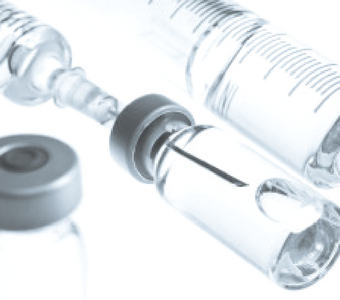Esbriet (perfenidone) sales in Europe have begun to pick up according to InterMune’s (NASDAQ:ITMN) third quarter results, driven largely (91%) by sales in Germany where the drug received government reimbursement approval in September of last year. Esbriet sales of $7.5M ($7M not including one-time additions) demonstrates sequential growth of 35% from 2Q ($5.54M), attributable to the company’s expanding European sales force. The company has been actively pursuing further market penetration through reimbursement agreements in the major and minor European markets, and the fruits of their labor are finally beginning to show. Management guides for sales this year at the high end of their $20-25M range. With Germany and France under their belt and a myriad of smaller markets climbing on board, management said on Wednesday’s conference call, “So to summarize our outlook for our EU business, by the end of second quarter of next year we expect to have launched Esbriet in all of five and the 10 mid-sized countries in Europe, which will comprise 75% of the EU population and about 80-85% of the EU pharmaceutical market value.” Health Canada also approved Esbriet in October, and InterMune plans to launch on January 1, 2013.
Esbriet is a treatment for Idiopathic Pulmonary Fibrosis (IPF), in which scarring of the lungs results in respiratory problems and often death; many patients live between 3 and 5 years after diagnosis. Esbriet is the only approved drug in Europe, and InterMune is seeking approval in the U.S. After rejection by the FDA in 2010, the company initiated the ongoing Phase 3 ASCEND study, which is expected to report top-line results in the first half of 2014 to support approval. The drug already has Orphan Drug and Fast Track status domestically, suggesting that the FDA recognizes the need for an IPF treatment, and analysts lean towards a likely approval. This catalyst, of course, would unlock a considerable untapped market. Analysts already estimate the global market for IPF treatments at upwards of $1.9B by 2018. However, competitors are circling the indication as well. Products from Novartis (NYSE:NVS) and Boehringer Ingelheim aren’t far behind Esbriet in development. Ingelheim’s Phase 3 trial for BIBF-1120 will be completed in October of 2013, and will likely release data around the same time as InterMune. Although product competition will apply pressure in the long-term, Esbriet has a substantial leg up in international marketing, and will be ahead of the curve if approved domestically.
The next year will be a telling time for InterMune as Esbriet enters most of the potential near-term markets and moves closer to FDA approval. (Read PropThink’s previous coverage) Analysts project revenues of roughly $73M in 2013, however, the company has a lot of ground to cover with significant operating expenses. InterMune reported cash, cash equivalents and securities of $351.4 million as of Sept. 30, and expects total operating expenses for 2012 to reach $200M. Given, costs should begin to wind down once the European sales infrastructure has been built, and expenditures associated with the ASCEND trial slow, but cash use should remain on the forefront of investors’ minds. Intermune’s $640M market cap and roughly $300M in cash suggest that the market is valuing the Esbriet asset at a little over $300M, or 4x estimated 2013 revenue. With major launches in the first half of next year, investors should be able to get a better idea of its performance in 2H13, and with pivotal data in early 2014, things should start to heat up. ITMN peaked around $50 after an FDA advisory panel suggested approval in 2010, and touched those highs again when the drug gained European approval in 2011. Sales have been forthcoming since, however, and the stock continued to decline until its $7.21 low in August. Third quarter sales figures demonstrate that Esbriet is finally gaining ground, and the stock reacted with a 20% gain during Thursday’s trading session. Considering that Esbriet is an early-growth product, ITMN may continue to rise as the market adjusts for long-term peak sales of the product. Already Thursday, Canaccord Genuity upgraded InterMune to a Buy with a price target of $13.00, and we expect others to follow suit. As Thursday’s gains were in part driven by trader momentum and short-covering, it may be prudent to see if ITMN can hold its short-term gains before making an entrance, but this could be the inflection point that ITMN bulls have been waiting for.



